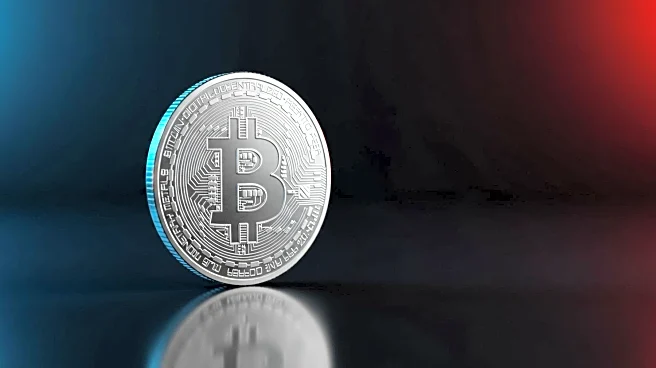What's Happening?
Eric Trump, executive vice president of The Trump Organization, suggested that a country may have quietly acquired 200,000 Bitcoin, valued at approximately $22 billion. His remarks at the Wyoming Blockchain Symposium have sparked curiosity and speculation within the Bitcoin community. Trump highlighted Bitcoin's liquidity and accessibility, advising followers to accumulate Bitcoin as a hedge against hard assets. The Winklevoss twins, co-founders of Gemini, have invested in American Bitcoin, a mining company with ties to the Trump family, further deepening their relationship with the current administration.
Why It's Important?
Eric Trump's comments add a layer of intrigue to the global Bitcoin race narrative, potentially indicating shifts in government policy or strategy regarding cryptocurrency holdings. The strategic investment by the Winklevoss twins in American Bitcoin suggests growing interest and influence of prominent figures in the crypto industry. As Bitcoin gains traction among investors and governments, its role as a strategic asset may impact financial markets and regulatory environments. The favorable regulatory climate under Trump appointee Paul Atkins at the SEC could further support crypto companies and investments.
What's Next?
The potential acquisition of Bitcoin by a country, as suggested by Eric Trump, could lead to increased geopolitical interest and competition in the cryptocurrency space. The strategic investments by the Winklevoss twins and the Trump family's involvement in American Bitcoin may drive further institutional participation and influence in the crypto market. As the regulatory environment becomes more favorable, companies like Gemini may pursue IPOs and expand their crypto offerings, potentially reshaping the industry's landscape.
Beyond the Headlines
The involvement of political figures and prominent investors in the Bitcoin market raises ethical and strategic questions about the influence of private interests on public policy. The integration of Bitcoin into corporate and government strategies reflects broader shifts in financial markets, where digital assets are increasingly seen as viable investment options. The potential for geopolitical competition over Bitcoin holdings may impact global economic dynamics and regulatory approaches to cryptocurrency.









